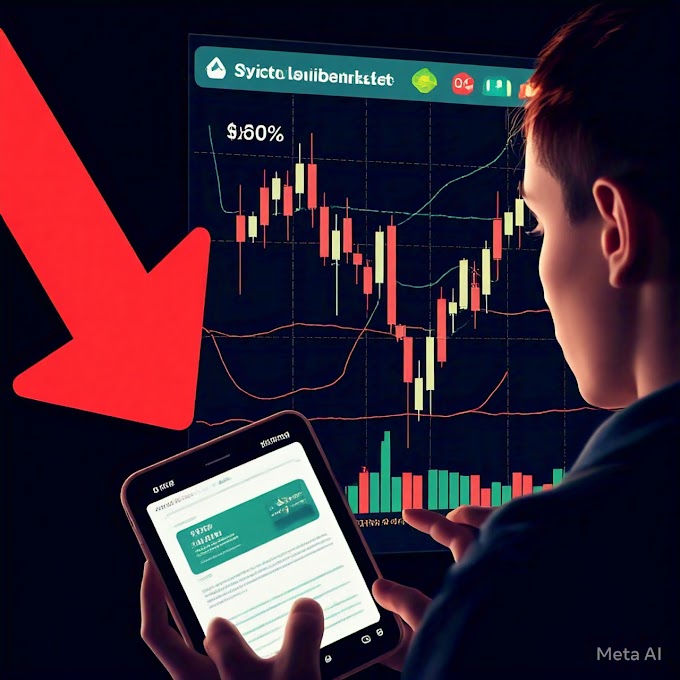The question "Is it safe to buy crypto on Robinhood?" is one that many new and seasoned investors ask when considering diving into the world of cryptocurrencies. Robinhood, a popular trading platform known for its user-friendly interface and commission-free trades, has expanded into offering cryptocurrency trading. But with the volatility and security concerns surrounding crypto, it’s natural to wonder about the safety of using Robinhood for these investments. This article explores the safety aspects of buying crypto on Robinhood, breaking down the platform’s features, security measures, risks, and more to help you make an informed decision.
Table of Contents
- What Is Robinhood and Its Crypto Offering?
- How Does Robinhood Ensure Security for Crypto Transactions?
- What Are the Risks of Buying Crypto on Robinhood?
- Comparing Robinhood to Other Crypto Platforms
- Regulatory Compliance and Robinhood’s Crypto Operations
- User Experience and Accessibility for Crypto Trading
- FAQs
- Conclusion
1. What Is Robinhood and Its Crypto Offering?
Robinhood launched in 2013 as a platform to democratize investing, offering commission-free trading for stocks, ETFs, and options. In 2018, it expanded into cryptocurrencies, allowing users to buy, sell, and hold a selection of digital assets like Bitcoin (BTC), Ethereum (ETH), and Dogecoin (DOGE). As of 2025, Robinhood supports a limited but growing list of cryptocurrencies compared to dedicated crypto exchanges like Coinbase or Binance.
Unlike traditional crypto exchanges, Robinhood’s crypto trading is integrated into its broader investment platform, meaning you can manage stocks and crypto in one place. However, Robinhood doesn’t allow users to transfer crypto to external wallets, which is a key distinction from other platforms. This limitation raises questions about ownership and safety, which we’ll explore further.
Robinhood’s crypto offering is designed for simplicity, targeting beginners who want to dip their toes into crypto without navigating complex exchanges. But simplicity comes with trade-offs, and understanding these is crucial when assessing safety.
2. How Does Robinhood Ensure Security for Crypto Transactions?
When evaluating whether it’s safe to buy crypto on Robinhood, security is a top concern. Robinhood employs several measures to protect users’ funds and data:
Two-Factor Authentication (2FA): Robinhood requires 2FA for account access, adding a layer of protection against unauthorized logins. Users receive a code via text or authenticator app, ensuring only they can access their accounts.
Cold Storage: Robinhood stores the majority of its users’ cryptocurrency in cold storage—offline wallets disconnected from the internet. This reduces the risk of hacking, as online (hot) wallets are more vulnerable to cyberattacks.
Encryption: The platform uses industry-standard encryption to secure data transmission, protecting sensitive information like passwords and transaction details.
FDIC and SIPC Protection (Limited): While Robinhood’s cash accounts are insured by the FDIC up to $250,000, and securities are protected by SIPC up to $500,000, these protections don’t apply to cryptocurrencies. Crypto is not considered a security or cash under these frameworks, so users rely on Robinhood’s internal safeguards.
Security Audits: Robinhood conducts regular security audits and works with third-party firms to identify vulnerabilities, ensuring its systems stay robust.
Despite these measures, no platform is immune to risks. In 2021, Robinhood experienced a data breach affecting millions of users, though no funds were reported stolen. This incident underscores the importance of understanding that even secure platforms can face challenges.
3. What Are the Risks of Buying Crypto on Robinhood?
While Robinhood has strong security protocols, buying crypto on the platform comes with risks that users should weigh:
No Wallet Ownership: Unlike traditional crypto exchanges, Robinhood doesn’t allow users to transfer crypto to personal wallets. You’re essentially buying a claim to the crypto, not the actual asset. This means you don’t have full control over your funds, which could be problematic if Robinhood faces insolvency or technical issues.
Limited Crypto Selection: Robinhood offers fewer cryptocurrencies than competitors. If you’re interested in niche or emerging coins, you’ll need to use another platform, potentially exposing you to additional risks elsewhere.
Market Volatility: Crypto is inherently volatile, and Robinhood’s platform doesn’t shield you from price swings. While this isn’t unique to Robinhood, the platform’s ease of access might encourage impulsive trading, amplifying losses.
Trading Restrictions: Robinhood has faced criticism for halting trading during volatile market conditions, as seen during the 2021 GameStop saga. While less common with crypto, similar restrictions could limit your ability to buy or sell at critical moments.
No Staking or Advanced Features: Unlike platforms like Kraken or Binance, Robinhood doesn’t offer staking, lending, or other advanced crypto features. This limits your ability to earn passive income, which some investors factor into their safety calculations.
Regulatory Uncertainty: The crypto industry faces evolving regulations, and Robinhood’s compliance could be affected by future laws, potentially impacting your funds.
These risks don’t necessarily make Robinhood unsafe, but they highlight the importance of understanding the platform’s limitations before investing.
4. Comparing Robinhood to Other Crypto Platforms
To assess whether Robinhood is safe for crypto, it’s helpful to compare it to other platforms like Coinbase, Binance, and Kraken:
Security: Coinbase and Kraken also use cold storage and 2FA, but they allow users to transfer crypto to personal wallets, giving you more control. Binance has faced regulatory scrutiny but offers robust security for its global user base.
Fees: Robinhood’s commission-free model is attractive, but it earns revenue through payment for order flow, which may result in slightly worse execution prices. Coinbase charges higher fees but offers more transparency in pricing.
Crypto Selection: Binance and Coinbase support hundreds of coins, while Robinhood’s selection is limited. This makes Robinhood less versatile for diversified crypto portfolios.
Features: Platforms like Kraken offer staking, margin trading, and futures, which Robinhood lacks. If you’re looking for advanced tools, Robinhood may feel restrictive.
User Control: Unlike Robinhood, most exchanges allow crypto withdrawals to external wallets, giving users full ownership. This is a significant factor for those prioritizing safety through decentralization.
For beginners, Robinhood’s simplicity and integration with stock trading are appealing. However, for serious crypto investors, dedicated exchanges may offer more flexibility and control, potentially enhancing safety.
5. Regulatory Compliance and Robinhood’s Crypto Operations
Robinhood operates under strict regulatory oversight in the U.S., which adds a layer of safety for users. The platform is registered with the Financial Industry Regulatory Authority (FINRA) and the Securities and Exchange Commission (SEC). Its crypto operations are handled by Robinhood Crypto, LLC, a subsidiary subject to state-level regulations, such as those from the New York State Department of Financial Services (NYDFS).
Robinhood complies with anti-money laundering (AML) and know-your-customer (KYC) requirements, ensuring user identities are verified to prevent fraud. However, crypto regulations are still evolving, and the SEC has signaled increased scrutiny of platforms offering digital assets. Any regulatory changes could impact Robinhood’s crypto offerings or user funds.
While regulatory compliance enhances safety, it’s worth noting that crypto is not insured like traditional assets. If Robinhood were to face financial difficulties, your crypto holdings might not be protected, unlike FDIC-insured cash or SIPC-protected securities.
6. User Experience and Accessibility for Crypto Trading
Robinhood’s user-friendly interface is one of its biggest strengths, making it an attractive option for beginners. The app’s clean design, real-time market data, and easy navigation allow users to buy crypto with just a few taps. This accessibility can make crypto trading feel safer for those intimidated by complex platforms.
However, the simplicity comes at a cost. Advanced traders may find the lack of charting tools, technical indicators, or wallet functionality limiting. Additionally, Robinhood’s customer support has historically been slow, which could be a concern if you encounter issues with your crypto trades.
For casual investors, Robinhood’s streamlined approach is a plus, but it’s important to balance ease of use with the platform’s limitations when assessing safety.
7. FAQs
Q: Can I lose my crypto if Robinhood goes bankrupt?
A: If Robinhood faces insolvency, your crypto could be at risk since it’s not insured by FDIC or SIPC. However, Robinhood’s use of cold storage and regulatory compliance reduces this risk.
Q: Is my crypto safe from hackers on Robinhood?
A: Robinhood uses cold storage and 2FA to protect against hacks, but no platform is completely secure. Enable 2FA and use strong passwords to enhance safety.
Q: Why can’t I transfer my crypto out of Robinhood?
A: Robinhood doesn’t support external wallet transfers, meaning you don’t fully own your crypto. This is a trade-off for the platform’s simplicity.
Q: Are there hidden fees when buying crypto on Robinhood?
A: Robinhood doesn’t charge commissions but earns revenue through spreads and payment for order flow, which may result in slightly higher costs.
Q: Is Robinhood good for long-term crypto investing?
A: Robinhood is better suited for short-term trading due to its lack of wallet transfers and advanced features. For long-term holding, consider platforms that allow wallet control.
8. Conclusion
So, is it safe to buy crypto on Robinhood? The answer depends on your priorities and risk tolerance. Robinhood offers a secure, user-friendly platform with robust features like cold storage and 2FA, making it a reasonable choice for beginners looking to trade popular cryptocurrencies. Its regulatory compliance and integration with stock trading add to its appeal. However, the inability to transfer crypto to personal wallets, limited coin selection, and lack of advanced features may concern serious investors who prioritize control and flexibility.
Compared to dedicated crypto exchanges, Robinhood sacrifices some functionality for simplicity. If you value owning your crypto outright or accessing a wider range of coins and tools, platforms like Coinbase or Kraken might be safer bets. Ultimately, while Robinhood is a legitimate and relatively safe option for casual crypto trading, it’s essential to understand its limitations and the broader risks of crypto investing. By weighing these factors and taking steps like enabling 2FA, you can make a more informed decision about whether Robinhood is the right platform for your crypto journey.


.png)
.png)
.png)





